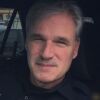To say the American model of policing is being unfairly and inaccurately portrayed would be an understatement. Our honored profession of service has been maligned like no other time in its history.
Despite their hard work and the daily risks that police officers take, there has been a misleading narrative promoted by some that policing is systemically corrupt and should be eliminated or defunded or is in need of a complete overhaul. A casual review of empirical data demonstrates what utter poppycock this is.
Work together to identify solutions
As an adjunct professor in community policing, I routinely assign letter grades for tests or papers. If I were to grade the American police model right now, I would give it a B- but of course, we should be striving for an A+. To achieve this, we must work together with those we serve to find solutions.
Police officers are public servants and must never lose sight that they serve at the will of the people. But the leading voices for strong positive improvements must come from the cops themselves because no one better understands the enormous responsibilities and the risks involved with policing than those who don a uniform.
We need bold strategies for these challenging times and police officers, particularly their leadership, must do a better job in shaping the narrative, making innovative change where needed, artfully adapting to its environment and reinforcing the power of our righteous mission. But it is going to take a team effort with an all-hands-on-deck mentality. It reminds me of a group exercise in a police leadership training class years ago.
An instructor held up a Styrofoam cup and told the students they had 10 minutes to write down 10 things they could do with the cup. This could involve any manipulation of the cup they could think of to include writing on it or tearing it in pieces. I recall struggling after about 7 responses and wondered what more you could possibly do with a Styrofoam cup. The instructor had each student read their answers and he wrote them out on big sheets of paper. As he wrote down many different responses, I suspect nearly all the students had a common thought running through their heads of “I never thought of that.” What the instructor did was show how we have a treasure trove of good ideas available among us but we must be willing to dig for them. Our current situation requires us to really start putting shovels to the ground.
Both small- and large-scale efforts are needed
From coast to coast, police agencies must engage in small and large-scale efforts at improving our service model, building trust and educating the public that we are doing well for them now but are committed to delivering sustainable excellence in the future. This could include hosting a police think tank, improved lobbying efforts and developing regional problem-solving strategies, as well as simple small gatherings where cops pick each other’s brains on how to do improve performance.
A good example was a recent blended training and think tank session my agency hosted called “Challenging times require bold strategies.” We had 21 participants and five presenters whose COLLECTIVE police department experience totaled 697 years. That is almost seven centuries of police knowledge and experience. The program had five active police chiefs and one retired chief who had served for 52 years in law enforcement. The program began with one of our police chaplains who gave a beautiful invocation prayer for the participants to experience wisdom during the program.
https://www.facebook.com/RichmondHeightsPoliceOhio/posts/850656692214471
The training topics included police recruitment, which is a serious concern today, along with community policing and the power of youth outreach. The highlight of the program was unquestionably the think tank session, which was designed to probe the minds of each participant on critical topics related to the challenges our profession is experiencing and share ideas on how to make our service model ever better.
Another smaller scale example of this is when I meet on Fridays over a cup of coffee with Paul Matias, another local police chief, at Fiona’s Cafe in downtown Willoughby, Ohio. Bouncing ideas off each other, we look for ways to better serve our customers while enjoying a cup of Joe and noshing on a bagel.
These important and much-needed contributions from our public servant guardians will point us in the right direction and help deliver an A+ service model that could become an international template of police excellence.
What LEOs want for the future of policing
4,000 officers speak up about police reform, recruitment and more in Police1's State of the Industry survey. Find out how satisfied cops are with their careers, the duties that are of most importance to officers and officer optimism about the future of law enforcement.




